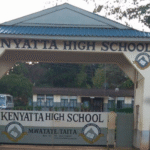Equity Bank has for many years been praised as one of the most successful financial institutions in East Africa, often presented as a symbol of growth and empowerment.
But new revelations from a whistleblower suggest a different story that has left customers and regulators worried.
The whistleblower, whose identity remains hidden for safety, has provided claims that point to questionable internal practices which, if confirmed, could cause serious damage to public trust in the bank.
The allegations indicate that top executives at the bank have been quietly managing activities that raise ethical and legal questions. Among these are unexplained account freezes, overly aggressive loan recovery measures, and alleged backroom deals with powerful individuals in politics and business. According to the whistleblower, customer funds have sometimes been shifted without proper explanation, raising suspicion of systemic malpractice.
The source explained that if the public truly understood what happens behind the scenes, the image of Equity as a people’s bank would quickly fall apart.
One of the biggest concerns raised is how some customers have had their accounts frozen without warning or clear justification. Reports suggest that business owners and ordinary citizens alike have been left stranded, sometimes for months, with no access to money they depend on.
A contractor in Nairobi shared that his account was locked while it contained millions of shillings meant for his workers. With no explanation beyond an “internal review,” he was unable to pay salaries and eventually had to cut his workforce by half.
In another case, a woman said her family’s medical fund was frozen at a time when her father needed urgent treatment. By the time the funds were released, it was too late to save him.
Aggressive loan recovery methods have also come under scrutiny. Borrowers complain of harassment, threats, and sudden seizures of property, often without enough time to negotiate repayment plans. The whistleblower says these measures fall hardest on small traders, farmers, and entrepreneurs the same groups that Equity publicly claims to support.
The situation becomes even more concerning when compared to the lenient treatment given to politically connected clients.
According to the whistleblower, certain high-profile individuals have received favorable terms when unable to repay their loans. In some cases, debts worth billions have been quietly rescheduled or even written off, while ordinary borrowers are subjected to heavy penalties and humiliating recovery practices.
This alleged double standard has sparked anger among Kenyans, many of whom feel betrayed by an institution they trusted with their livelihoods.
The claims have already reached regulators, with both the Central Bank of Kenya and the Capital Markets Authority reportedly monitoring the situation. Civil society groups are demanding independent investigations and parliamentary action, warning that ignoring the issue could fuel more abuse and inequality.
Equity Bank’s reputation has long been built on being the bank of the people, opening doors for millions who were once excluded from formal banking. But the whistleblower’s revelations suggest that beneath the polished image lies a system that protects the powerful while burdening the ordinary.





















Add Comment